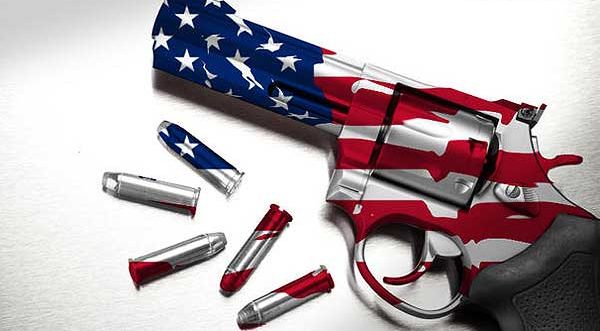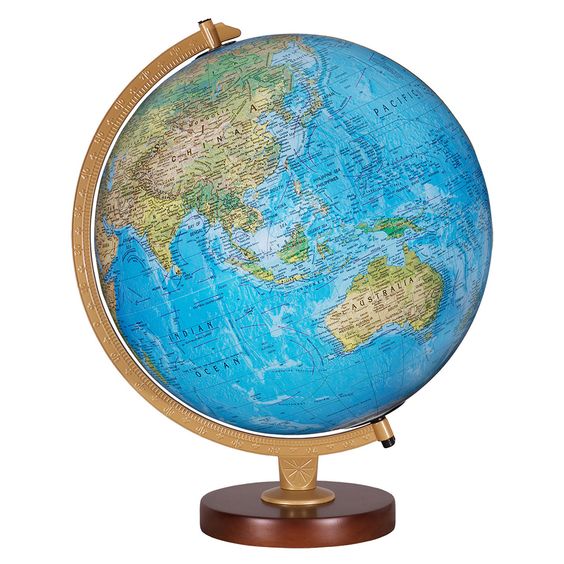
For centuries, successive British monarchs required a well-armed citizens’ army to fight their wars.
But why do Americans need guns? Conservatives say it is to protect themselves and their families from bad people with guns. Liberals reply: then take the guns away from the baddies as well as the goodies so no one can shoot. It is a policy that has worked in Britain, Australia, Canada, New Zealand and other developed countries.
By Tom Arms
Chiselled on the wall of the entrance lobby of the National Rifle Association are the words: “The right of the people to keep and bear arms shall not be infringed.”
This, claims the gun lobby is the Second Amendment of the US constitution. It is not. The oft-quoted right to bear arms clause is preceded by the words “A well-regulated militia, being necessary to the security of a free state, the right….”
Should the amendment be read in its entirety with the second half contingent on the first? Or has the need for a citizens’ militia become redundant in the modern age and therefore only the second half remains relevant?
The NRA is in no doubt. It only every quotes the second half. All references to militias are conspicuous by their absence.
But why do Americans need guns? Conservatives say it is to protect themselves and their families from bad people with guns. Liberals reply: then take the guns away from the baddies as well as the goodies so no one can shoot. It is a policy that has worked in Britain, Australia, Canada, New Zealand and other developed countries.
American conservatives retort with what may be the real reason for hanging onto their firearms: Individual gun ownership is the ultimate defence against tyranny—the tranny of anarchy and the tyranny of overbearing government.
Texas Senator Ted Cruz—one of the most prominent supporters of the NRA and a major beneficiary of the gun lobby’s largesse–was crystal clear on the tyranny issue when he ran for the Republican presidential nomination in 2016. He wrote in his campaign literature:
“The Second Amendment isn’t just for protecting hunting rights, and it’s not only to safeguard your right to target practice. It’s a constitutional right to protect your children, your family, your home, our lives, and to serve as the ultimate check against governmental tyranny—for the protection of liberty.”
But from whence does this need for weapons as protection against tyranny come? The answer is Britain.
For centuries, successive British monarchs required a well-armed citizens’ army to fight their wars. The weapon of choice was the English (or, if you prefer, Welsh) longbow. Every able-bodied male was forced to participate in regular archery sessions to ensure top notch fighting skills were kept on tap. It was not until the 17th century that Britain had anything resembling the standing armies of today. And the efforts of King James II to create a Catholic-officered standing army was one of the main reasons for his forced abdication.
A year later, the 1689 English Bill of Rights, forbade the “raising and keeping of a standing army… without the consent of parliament.” The Bill of Rights also included a passage (clause 7) which is claimed to be a herald of America’s Second Amendment: “Protestants may have arms for their defence” with the clear implication that the weapons were for defence against monarchical-inspired Catholic tyranny.
By the middle of the 18th century a standing army had become a fact of British life but in America they still relied on a citizens’ militia to fight the constant wars against Native Americans and the dreaded French. That changed with the 1756-63 Seven Years’ War (the French and Indian Wars in America).
To protect the Thirteen Colonies from French attacks, the British sent a large standing army across the Atlantic. This cost money which the British government tried to recoup by imposing taxes on the colonists and ordering them to house the troops that remained. Both were major issues which led to the American War of Independence.
It was those combined factors—the fear of government tyranny and a standing army to enforce that tyranny—that led American Founding Father James Madison to write the Second Amendment. He was not, as Senator Cruz, would say, concerned about hunting rights or target practice.
Clause Seven of the 1689 English Bill of Rights has an additional—and important line. After protecting Protestants right to bear arms it adds three important words “according to law.”
This short phrase has enabled successive British governments to pass a series of gun control laws as responsibility for protection from violence passed from the weapons-bearing individual to a police force controlled by a directly elected government. In 1903, Parliament passed the first gun control law of modern times. The Pistol Act was followed by a series of increasingly restrictive laws on gun ownership passed in 1920, 1930, 1933, 1937 and 1968. Then came the Dunblane Massacre of 1996 when 16 children and one teacher were shot dead in Dunblane, Scotland. The following year pistols were banned.
The NRA is adamant that Americans need protection from the tyranny of their government. Wayne LaPierre, CEO of the NRA, wrote in an attack on pro-gun control legislators: “It doesn’t matter to them that the semi-auto ban gives jack-booted government thugs more power to take away our constitutional rights, break in our doors, seize our guns, destroy our property and even injure or kill us.”
The tyranny argument held water when the tyrant was an unelected dictator or a monarch driven by religious and political beliefs contrary to the wider public good, or a government intent on taxing a populace without offering them parliamentary representation. A democratically elected government cannot—by its very nature—be a tyrannical one. If it is, then that democratic system is seriously flawed.
 World Review
World Review
- The 27 EU heads of government are meeting in Brussels next week to supposedly confirm plans to stop imports of Russian oil and gas. It may not happen. Decisions have to be unanimous. Hungary’s Viktor Orban has signalled that he will block the move. Hungary is dependent on Russian fossil fuels for 100 percent of its energy needs. These can only be delivered by pipelines because Hungary is landlocked. All the pipelines run from Russia. The other EU countries have offered to give Hungary a two-year grace period to find alternative sources. But Orban maintains that he has no alternatives and that stopping imports of Russian gas would destroy the Hungarian economy. At the same time, the newly re-elected Hungarian leader has used the war in Ukraine to declare a state of emergency which allows him to effectively rule by decree. Orban claims that the Ukraine war “represents a constant threat to Hungary.” He has already used his new powers to impose fresh taxes to finance an increase in defence spending. Many fear that Orban will abuse the state of emergency to bypass parliament and suppress critics. He is already under attack from Brussels for damaging Hungary’s democratic institutions and the EU is threatening to withhold development funds because of that and allegations of corruption. Former Belgian Prime Minister Guy Verhofstadt tweeted: “Hungary was already no longer free, now it is no longer a democracy”.
- With all this talk about Taiwan and ambiguous or clear US policies on the issue of whether or not to defend the island, one thing has been slightly overlooked– chips. To be precise advanced semi-conductor computer chips. Taiwan produces 92 percent of the world’s advanced semi-conductor computer chips. The remaining eight percent come from South Korea. These tiny electrical conductors are to technology what oil and gas are to industry and transport. Without them our computer-dependent world would come to a sudden halt. China, in particular, relies heavily on imports of Taiwanese semi-conductors. The chips are produced by one company, the aptly-named Taiwan Semi- Conductor Manufacturing Corporation (TSMC) and provides the island with what has been termed a “Silicon Shield.” The shield protects Taiwan from Chinese attack because of Beijing’s fear that vital factories will be damaged and ensures US protection for the same reason. Even if the factories – which are situated near potential battle zones—survive unscathed, a Chinese invasion would disrupt the delicate supply chain involving over 50 countries. Both the US and China are trying to develop their own advanced semi-conductor industries. The Biden Administration is attempting to persuade TSMC to set up a manufacturing plant in America. Beijing would love to have the same facility but there is no way that the Taiwanese would allow that and at the moment, the Chinese are believed to be at least a decade behind in developing an independent advanced semi-conductor industry.
- When Russia watchers talk about possible successors to Vladimir Putin the name of Nikolai Patrushev crops up more and more. That is not good news for those seeking an end to the Ukraine War. The 70-year-old Patrushev is head of Russia’s powerful Security Council and has been described as “the most hawkish of hawks.” He is the main contributor to Putin’s tough line on Ukraine and the two men have been close since their early days in the KGB in the 1970s. The pair also worked together in St Petersburg following the collapse of the Soviet Union and both have headed the FSB, successor agency to the KGB. In a recent interview, the Russian security chief said that “all the goals set by the President (Putin) will be fulfilled. It cannot be otherwise, because truth, including historic truth, is on our side.” Patrushev—along with Putin—believes that Russia has a rightful historic mission to be a major world power. This view is an echo of a 19th century Russian-based political philosophy called slavophilia which dismissed Western rationalism, promoted Russian mysticism and argued that Slavs in general and Slavic Russia in particular, had a special world mission.
- It looks as if Turkey’s President Erdogan may be planning a bit of territorial bartering over the issue of Swedish and Finnish membership of NATO. He has angered fellow NATO members by threatening to block the Nordic countries’ entry into the military alliance. His excuse? Sweden and Finland provide asylum to Kurds opposed to his regime. No sooner did Erdogan issue his threat then he also announced that he would be sending more Turkish troops to a 20-mile strip of Northern Syria to suppress US-backed Kurdish forces fighting Islamic militants. The asylum seeking Kurds in Scandinavia are from the PKK which is branded a terrorist organisation by the US and EU. Those in Syria are from a sister-group called the YPG and they are recognised as legitimate by the US. So far, Washington’s response to Erdogan’s renewed attack on Syrian-based Kurds has been a deafening silence, but the bones of a diplomatic agreement appear to be materializing: Turkey can have its slice of Syria if Sweden and Finland are allowed into NATO. The Kurds, as usual, are collateral damage.
_______________
 Tom Arms is foreign editor of Liberal Democrat Voice. The above article is abridged from his recently published book “America Made in Britain.”
Tom Arms is foreign editor of Liberal Democrat Voice. The above article is abridged from his recently published book “America Made in Britain.”